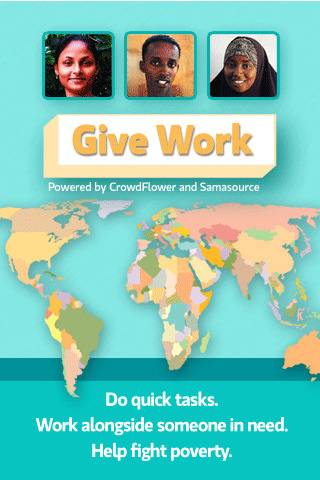Crowdsourcing may be stretching the geo-political landscape much the same way that cloud computing is redefining the data center. In short, nothing is safe and yet everything has the promise of being better.

Companies, industries, and economies are forming in the cloud by taking on these tasks and participating in the ecosystem across the world. For the last several years, Amazon has been leading the way in defining this market with Mechanical Turk. Today, when we checked, there are 75,000 HITs (Human Intelligence Tasks) waiting to be collected on.
Last night’s crowdsourcing panel at the San Francisco Commonwealth Club included several thought leaders, and was moderated by Brad Stone of the New York Times. It was filled with young people – and few of receding years – and it explored the phenomena and the marketplace being built by crowdsourcing.
There are a number of twists and turns already being uncovered in the world of cloud sourcing. Below, a brief profile of three of the companies the speakers from the panel represent.
Working On The Virtual Farm
Lukas Biewald, CEO of CrowdFlower shared his company’s success in being a platform for crowdsourcing. His tools live on top of Mechanical Turk and helping optimize the platform for quality of delivery.

Crowdflower guides companies through the process of designing questions and setting targets that map to the goals of the projects and offers reports and manageability for clients like O’Reilly, Microsoft, and others that have digital assets that need batch processing by humans.
One of the interesting observations from Biewald is that the company is now a large buyer of virtual Zynga’s currency to power Farmville. His audience values virtual currency enough to trade it directly for tasks. A bit of brain power for you; a bit of brain candy for me.

He offered the crowd a brain twister that might befuddle even the deluxe version of TurboTax:
“A person completes an intelligence task assigned to them, which is a job that pays them in virtual currency. They then buy seeds from Farmville created by another person who created them in Farmville and is earning virtual currency. Who pays what taxes for which goods?” He also mentioned that his company is not working on solving that problem.
CrowdFlower gives us a glimpse of a new world of the real-time workforce and how it moves up the stack. In a way, this seems reminiscent of the rise of power in outsourcing. Originally, it was call centers, then it moved up the IT stack to provide services all the way into business strategy and complete outsourcing.
Activating a Globe: Moving from the Farm to the Machine
Leila Janah, the founder of Samasource, was also on the panel. Her stories focused on how crowdsourcing can fight global poverty by giving people around the world an opportunity to earn money by completing knowledge tasks.
Even though many of the jobs and wages are low for Turk jobs, the teams that she has setup have been able to (with a little help) get pods of people set up in India, Africa, Haiti and other places.
Here’s an example mission that is focused on spinning up a group of translators to help the efforts in Haiti to sort out communications (and in this case translate text messages).
Mission 4636 from CrowdFlower on Vimeo.
Janah reports that these individuals really aspire to participating in the global economy and moving ahead as knowledge stakeholders.

She also noted that their approach is to setup high-performing teams that work together to manage crowdsourced tasks. It is exciting to think that these knowledge outposts forming around the world.
Samasource has teamed up with Crowdflower to offer a program for promoting sharing work with individuals in Africa to help fight global poverty. They have released an iPhone app called Give Work that allows a person to give work.
Avoiding the Crowd SweatShop, or Cesar Chavez for the Cloud
Lily Irani, Ph.D. candidate at the University of California Irvine has been researching the phenomena of the new distributed work force. She brought a cautious point of view to the panel, reminding the audience that crowdsourcing has created a massive shift in power towards the employer.
She asked us to consider some of practical challenges in equitable pay and enforcing contracts for payment with providers in a distributed environment.
Irani reminds us that over the decades we’ve seen waves of globalization, and globalization has massive impacts on the worker-employer balance. She has contributed to a project called Turkopticon, which allows an overlay on top of Amazon’s Mechanical Turk to allow the workers to rate the employer, which currently not a feature of the system.
This is a presentation “http://www.slideshare.net/lirani/agency-and-exploitation-in-amazon-mechanical-turk” co-written by Six Silverman and Irani that gives a good overview of Amazon’s Mechanical Turk. It also explains several risks to the population of workers including some of the basic things you may not encounter today in a in-person job.
Agency and Exploitation in Amazon Mechanical Turk
View more
from
University of California, Irvine
.
Her work begs us to look at the past and to consider the balance of power in crowdsourcing. Will these knowledge workers be able to take advantage of the benefits of the historical labor movement?

Will this movement bring the world closer together? What would you be willing to do for Farmville peas?

















